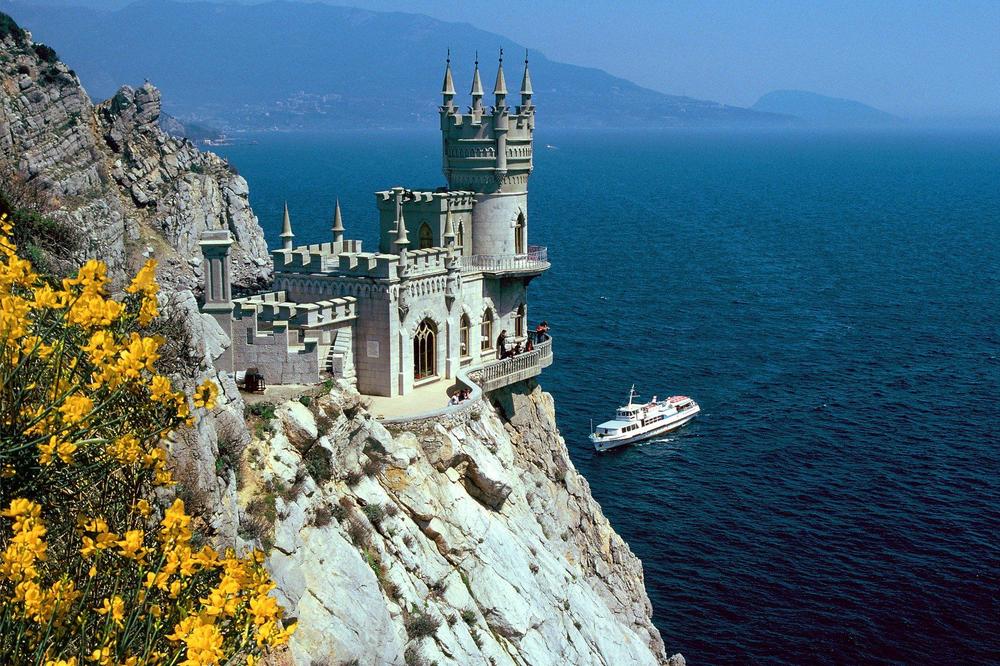Zelensky announces that the Ukrainian flag will fly again in Crimea

The Ukrainian flag will fly again in Crimea and bring European values and an end to religious and ethnic persecution to the temporarily occupied peninsula, said Ukrainian President Volodymyr Zelensky in his video address to the participants of the Crimean Platform in Zagreb.
As Zelensky pointed out, Russia, which annexed Crimea in 2014, destroyed its economic prospects and is carrying out ethnically and religiously motivated repression on the peninsula.
- But the Ukrainian flag will fly again in Crimea. Crimea will be liberated, and only then will the world feel that the war has stopped and people will feel that the world has become safe, Zelensky underlined.
According to him, cooperation can "completely change the situation".
- The return of the Ukrainian flag to Crimea is a return to European standards. To what you all have in your countries – security, resolved social issues, culture, education, added Zelenski.
In August 2021, Kyiv hosted the inaugural summit of the Crimean Platform, which coordinates the international response to the annexation of Crimea and other security challenges.
The summit was held again in August this year, in virtual form, and both were at the level of presidents of states or governments. The meeting in Zagreb determined the parliamentary dimension of the Crimean Platform.

The Ukrainian president repeated that his country, in the fight against the Russian aggressor, needs military and financial support, as well as sanctions against Russia.
- That is the basis for future peace, underlined Zelensky, adding that the world after the Russian invasion has become "a harsher place where Russia can cause hunger" by blocking free navigation and stopping exports.
Zelenski thanked the "Croatian friends" for the call and the Croatian Prime Minister Andrej Plenkovic for the hospitality, while he appealed to others to visit "our liberated Crimea as soon as we return there, because that part of Europe has not seen such important guests for a long time." .

photo EPA-EFE/ANTONIO BAT
There are 42 delegations from 32 countries in Zagreb. Five countries are represented by presidents of two parliamentary houses – Belgium, the Czech Republic, Ireland, Poland and Romania. Eleven countries will participate via video message, including France, Hungary, Japan and Canada.
Representatives of five parliamentary groups of international organizations are also in Zagreb - the European Parliament, the Council of Europe's PA, the OSCE's PA, the Inter-Parliamentary Union and NATO's PA


